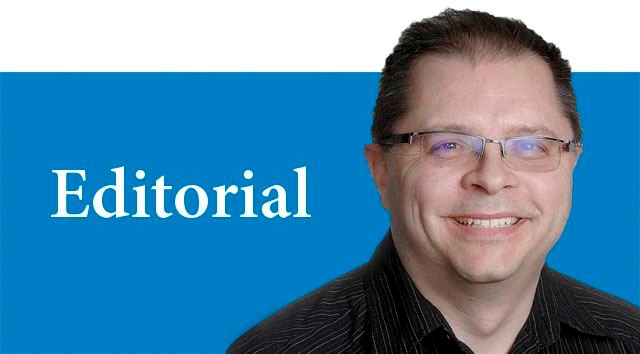It used to be called shell shock.
Finally, in 1980, after dealing with tens of thousands of Vietnam veterans, the medical community properly named it: post-traumatic stress disorder.
With modern brain scans, clinic psychologists like UNBC professor Ken Prkachin can even see PTSD because of the ongoing hyperactivity in the part of the brain where fear and anxiety live.
In an interview in 2012, Prkachin told The Citizen that work-related trauma is, in his experience, the most common cause of PTSD. He specifically pointed to people in uniform, be they soldiers, fire fighters, police officers or paramedics, as people more prone to PTSD, "just because they see more horrific things."
These traumatic sights trigger the fight-or-flight response.
After repeated trauma, that response won't shut off and the symptoms of PTSD start revealing themselves - flashbacks and nightmares, inability to sleep and concentrate, emotional outbursts, fear of loud noises or abrupt movements.
"People start to lose the ability to feel emotions, good or bad, and that can adversely affect intimate family relationships. They distance themselves from the emotions they feel, which can worsen the condition," wrote reporter Ted Clarke in his story after interviewing Prkachin.
"PTSD sufferers tend to avoid places or people who remind them of the event that touched off their condition."
Those characteristics are how Prince George RCMP Staff Sgt. Kent MacNeill described himself during a revealing exclusive interview published in today's Citizen.
A 16-year RCMP veteran who has spent his entire career in Prince George, MacNeill rose quickly through the ranks partly because of his PTSD symptoms.
It was easier to stay at work and keep his guard up then it was to go home and relax with his family.
He knows many of his colleagues will be shocked by his condition, which is being treated with both medication and counselling.
Some become alcoholics, MacNeill became a workaholic and "proficient at hiding."
And he got worse, because he was constantly exposing himself to the very settings that harmed him in the first place. As a result, there are few places he can go in Prince George where he doesn't think about past cases.
Sadly, he'll understand those who refuse to believe he's sick, whether they're colleagues, friends or family members. He was first diagnosed more than seven years ago. He refused to believe it and he rejected treatment. He now calls it the worst decision he ever made.
Since seeking care, he says it feels like "a million pounds are off my shoulders."
He wanted to come forward now to support Cariboo-Prince George MP Todd Doherty's private member's bill before the House of Commons.
Bill C-211, which calls for a national framework around PTSD involving the provincial and federal governments. The bill will have its second reading before the House today, at which point it will either go to committee for further study and input or it will be defeated.
MacNeill, Theo Fleury and Greg Matters all have different stories but the common thread is how traumatic experiences outside of their control made them sick.
Fleury stressed during his visit to Prince George this week that there are only three paths for sufferers - institutionalization, jail or death. Matters died, Fleury did the first two and came frighteningly close to taking his own life.
Others, like MacNeill, were able to get themselves into treatment before things got too far, whether that required institutional or out-patient care.
Doherty is particularly concerned about the first responders, the people like Matters and MacNeill, who willingly put on a uniform and selflessly put themselves in harm's way for their fellow residents.
MacNeill and his fellow citizens in uniform answer the call of all Canadians in their hour of greatest need.
First responders have certainly earned the right to have their calls for help to be heard and answered by all Canadians.
-- Managing editor Neil Godbout



